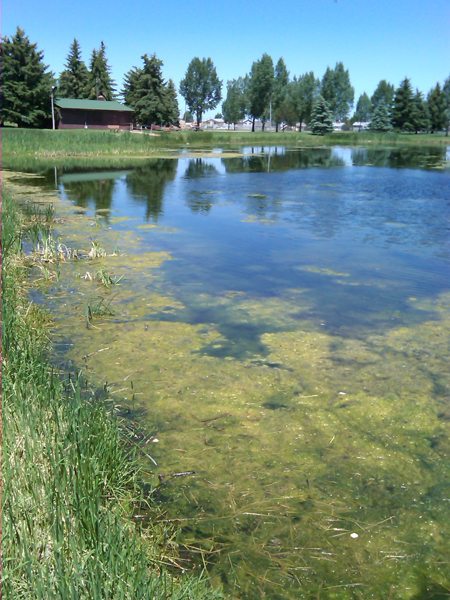Freshwater algae, here used to refer to both true algae and cyanobacteria, serve as a natural carbon sink and are a potentially rich source of biomass feedstock for biodiesel and hydrogen and have other commercial applications as well. While growing algae as candidate bioenergy feedstocks in open ponds is less expensive than closed-reactor growth, they are then vulnerable to the activities of other pond microorganisms. This project focuses on understanding how non-algal microorganisms interact with algae, and particularly their impact on algal population dynamics. The work involves sequencing the microbial communities of populations in a small urban lake with reliably recurring annual algal blooms. Though algal blooms typically have negative connotations because they can take over freshwater systems, in this case they provide ideal conditions for studying bacterial-algal interactions relevant to algaculture. Employing a metatranscriptomic approach in which the expressed genetic information of an ecosystem is sequenced would afford researchers insight into the organisms and processes involved in development and decline of freshwater algal populations. This improved understanding will be applicable to the management of both beneficial and harmful aspects of algal growth.

Photo: LaBonte Lake, Laramie, Wyoming (Sage McCann)
Principal Investigators: Naomi Ward, University of Wyoming
Program: CSP 2010